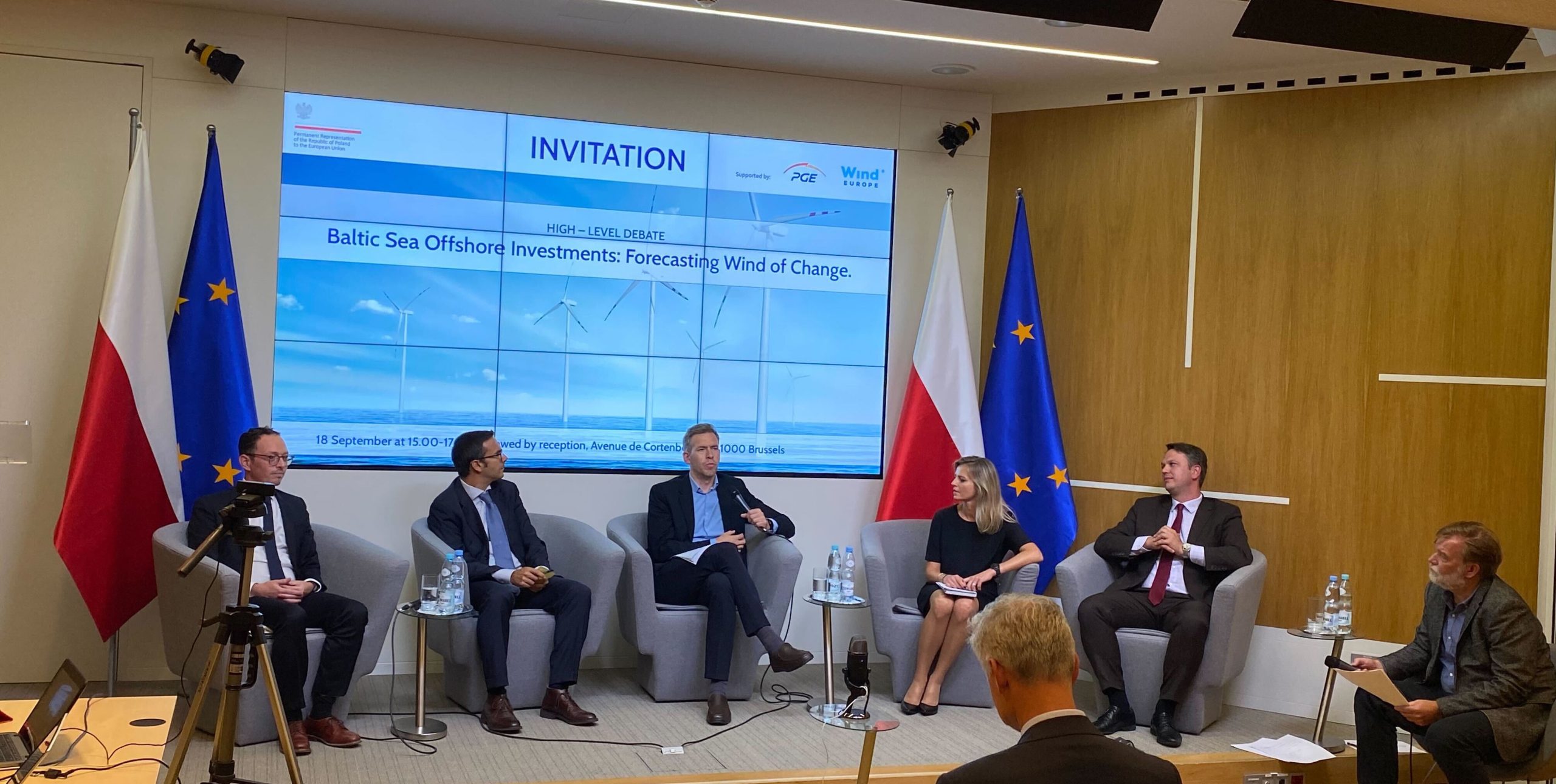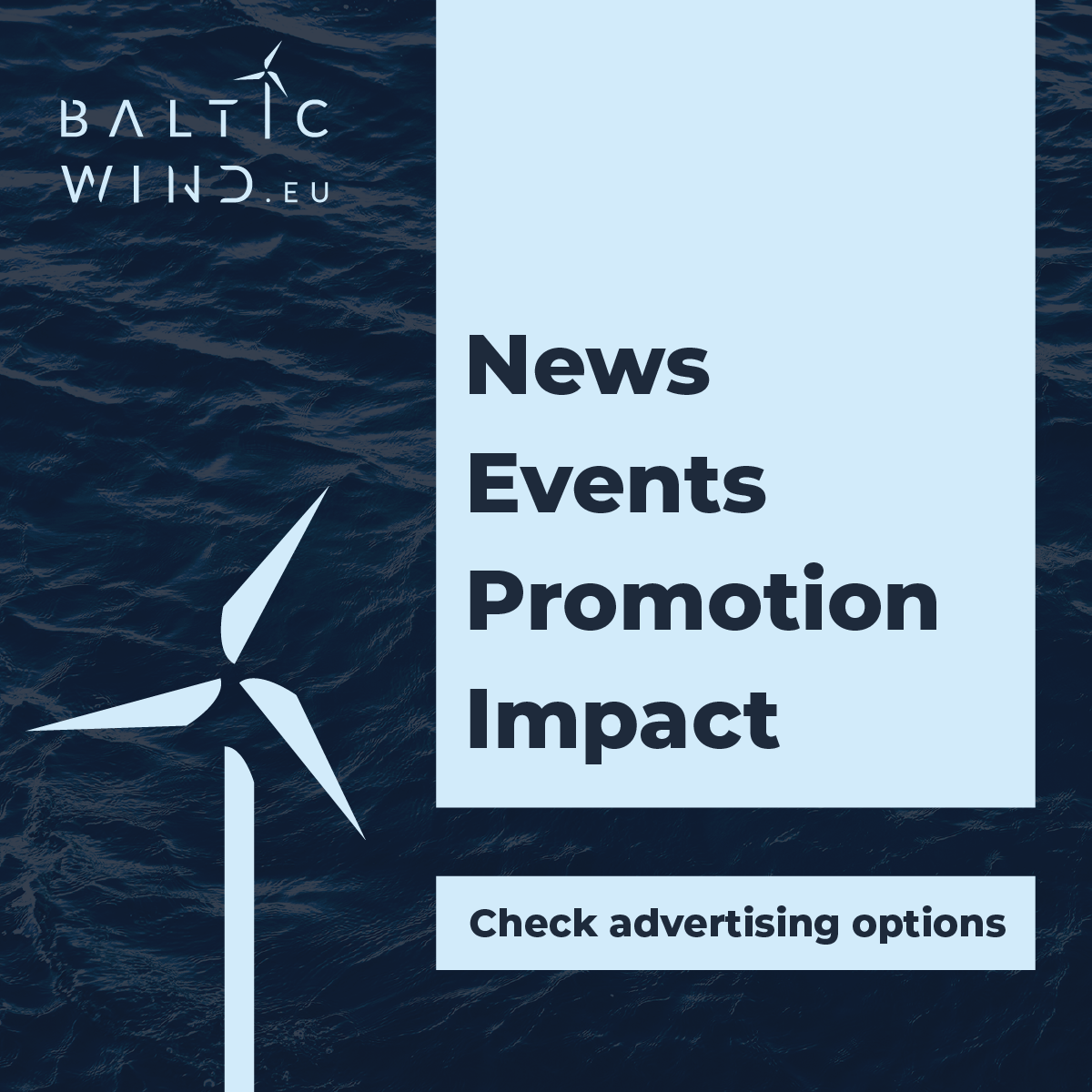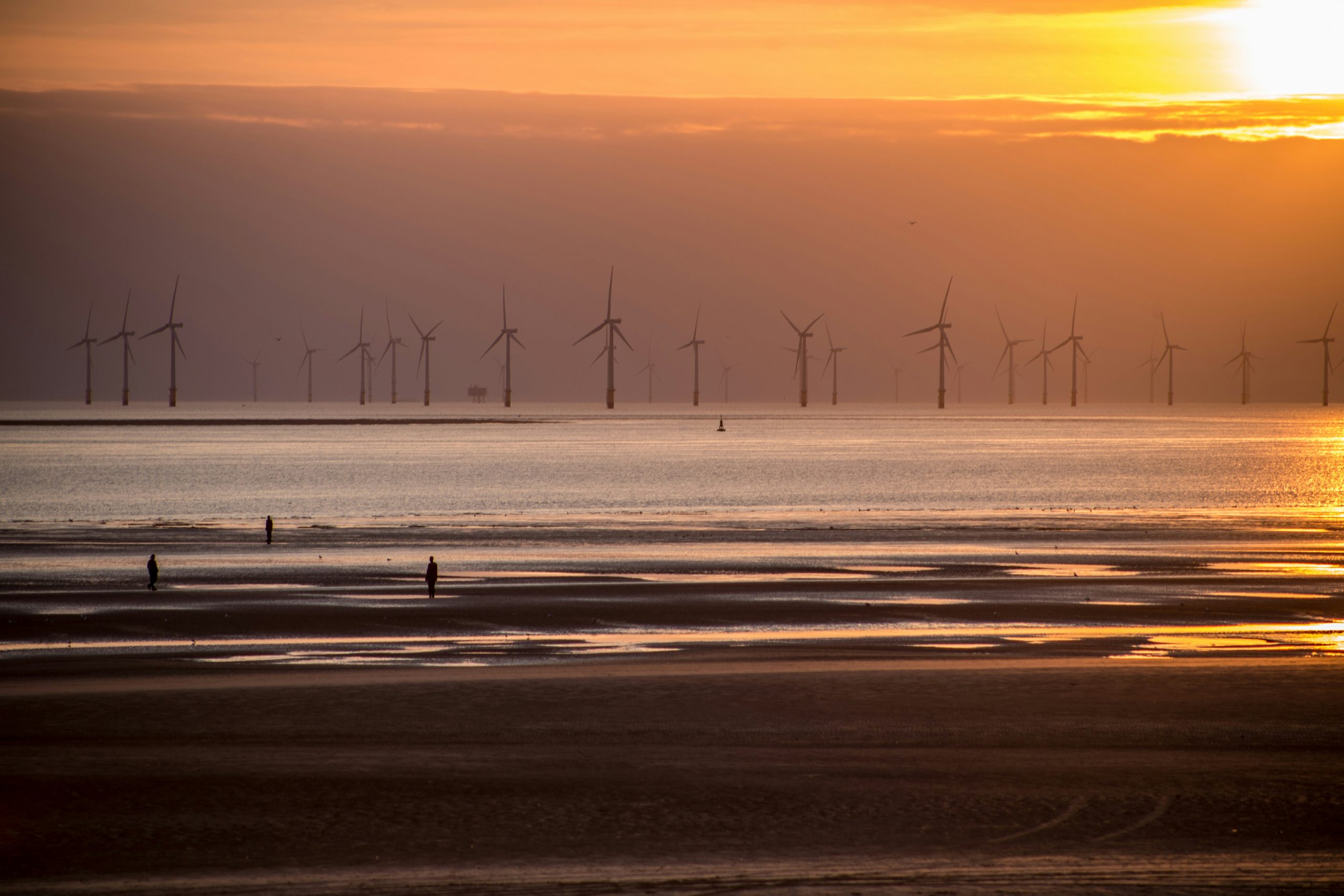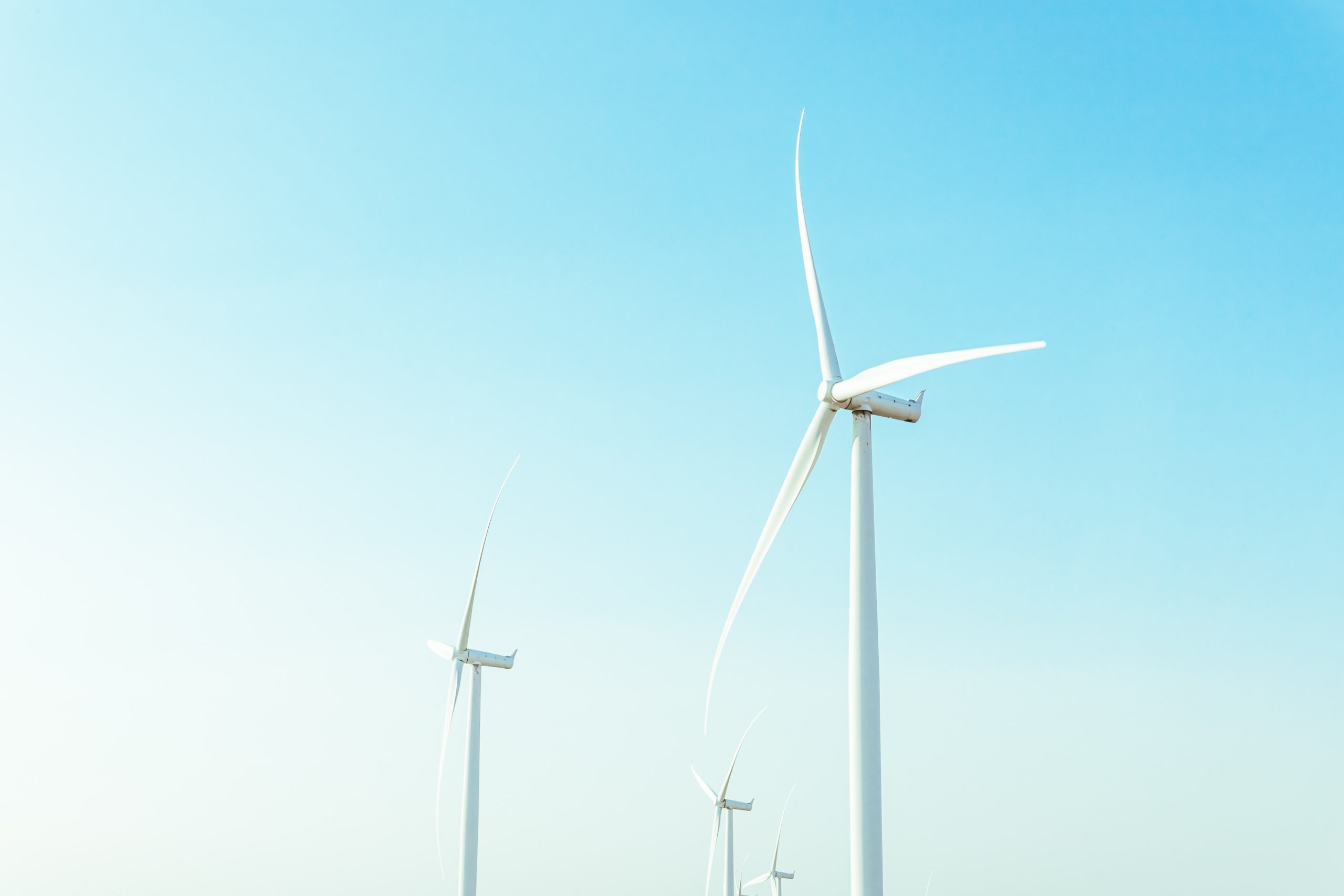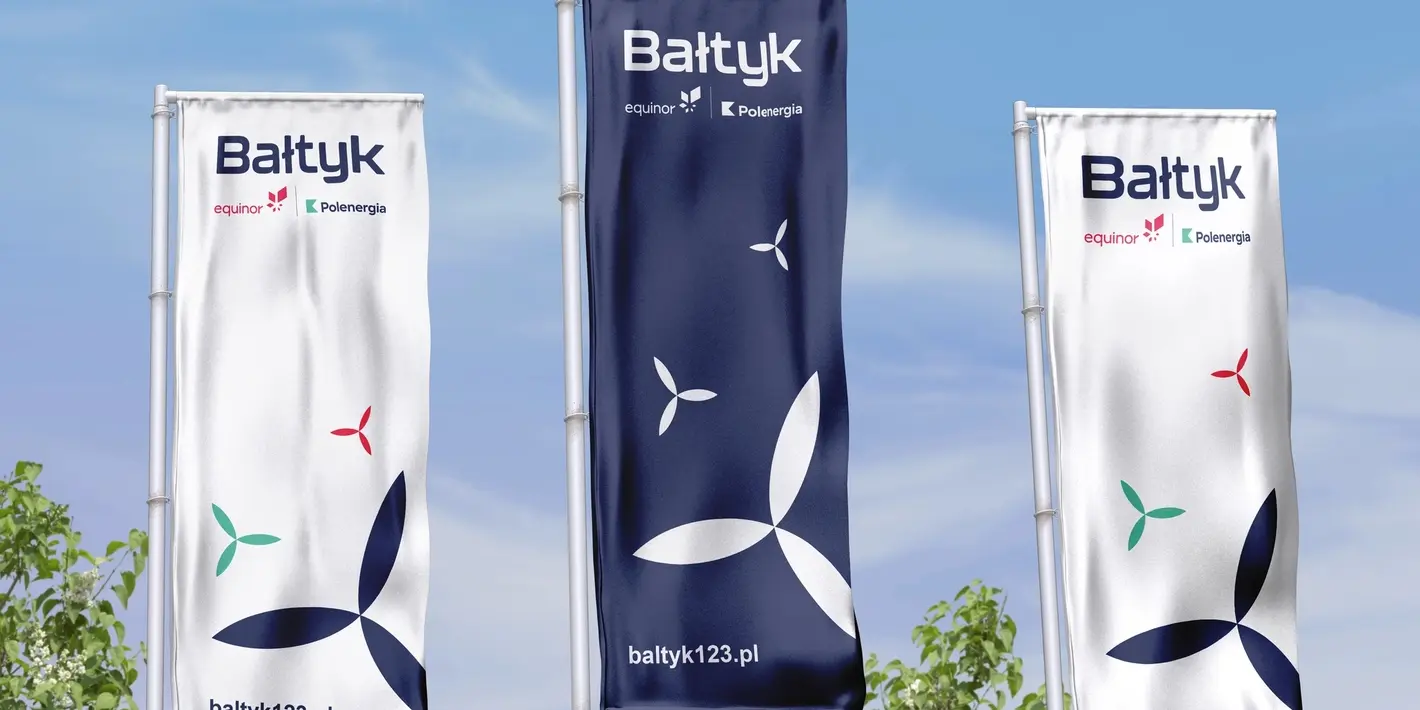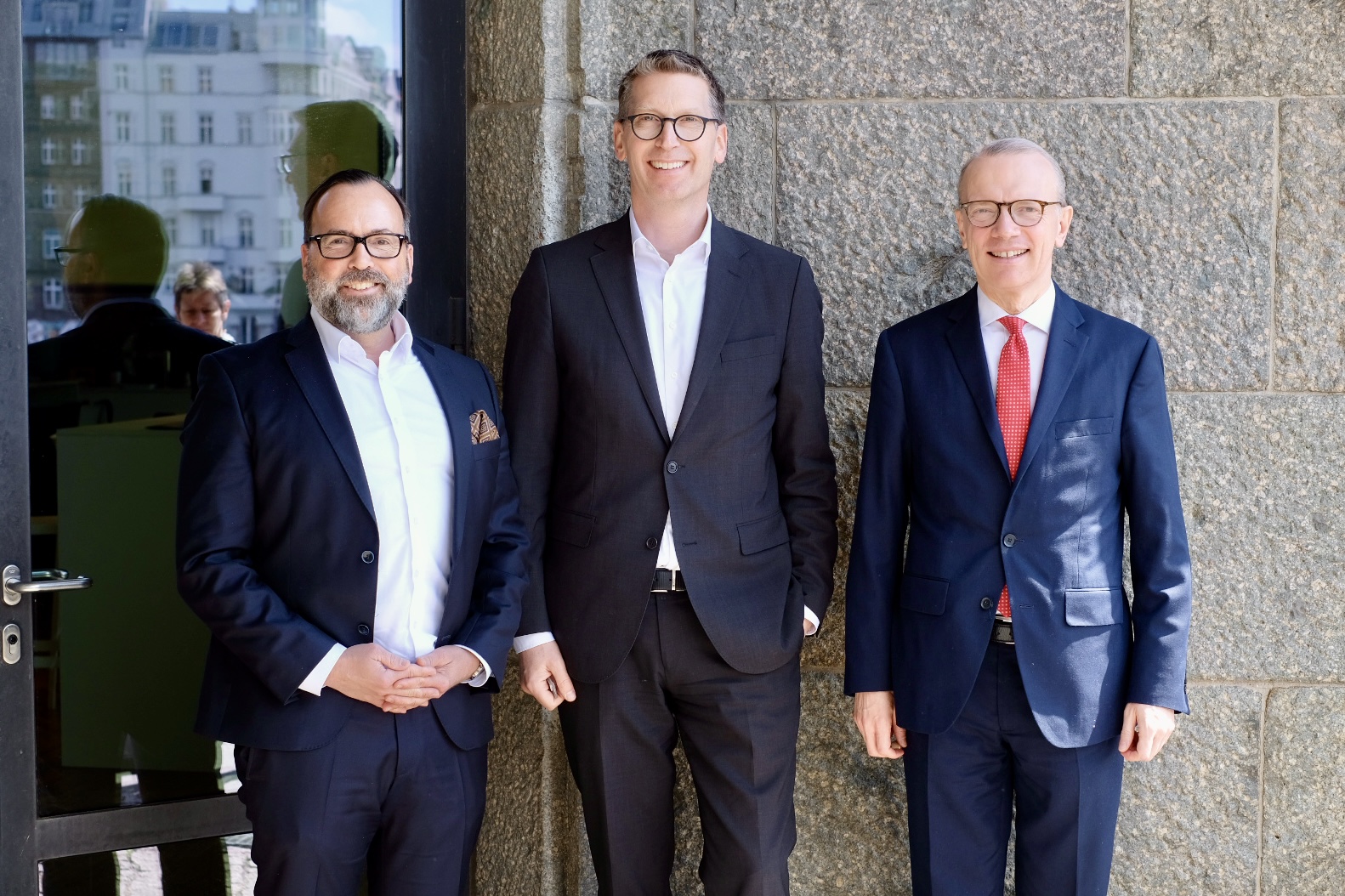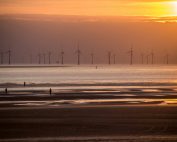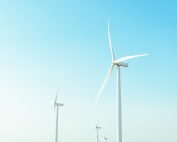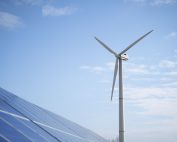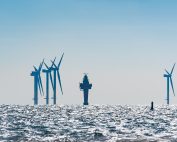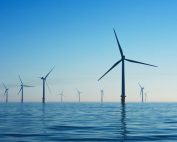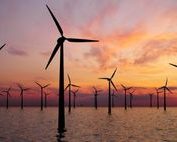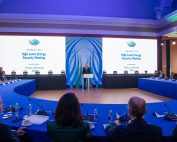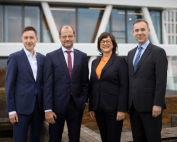The “Baltic Sea Offshore Investments: Forecasting Wind of Change” conference was recently held at the Permanent Representation of the Republic of Poland to the European Union. This event brought together industry stakeholders to discuss the future of offshore wind energy in the Baltic Sea, emphasising both its vast potential and the challenges it faces.
The potential of offshore wind development in accelerating Europe’s clean energy transition has been widely acknowledged. However, the past year witnessed the lowest investment volumes in a decade, impacting the EU’s ability to harness its full potential. Specifically, the Baltic region’s potential is estimated to exceed 93 GW by 2050. While the first Baltic offshore projects are set to be operational in the coming years, contributing to the region’s decarbonisation, maintaining momentum with subsequent projects is crucial to meet the EU’s ambitious climate targets.
The panel debate, moderated by Matthew James of EnergyPost.EU, brought together a group of experts, representing significant sectors and organisations within the European energy and industrial landscape: Thor-Sten Vertmann, a Member of the Cabinet of Kadri Simson, the EU Commissioner for Energy, Benedikt Herges, the Head of European Government Affairs at Siemens Energy, Malgosia Bartosik, the Deputy CEO of WindEurope, Adolfo Aiello, the Deputy Director General of the European Steel Association EUROFER, and Arkadiusz Sekściński, CEO of PGE Baltica.
In her keynote opening the event, Wanda Buk, Deputy CEO of PGE, addressed the challenges faced by the wind power industry: “The wind power industry has been buffeted by inflation and supply chain pressures. We welcome the proposed package of measures to support the European wind energy industry announced last week by the European Commission.” She added, “Key solutions are fast-track permitting, more effective auction systems, and stable supply chains. We await the proposal of optimisation and specific solutions to reduce costs. I hope this package will address the sector’s problematic issues, as the development of wind energy is pivotal for successful decarbonisation.”
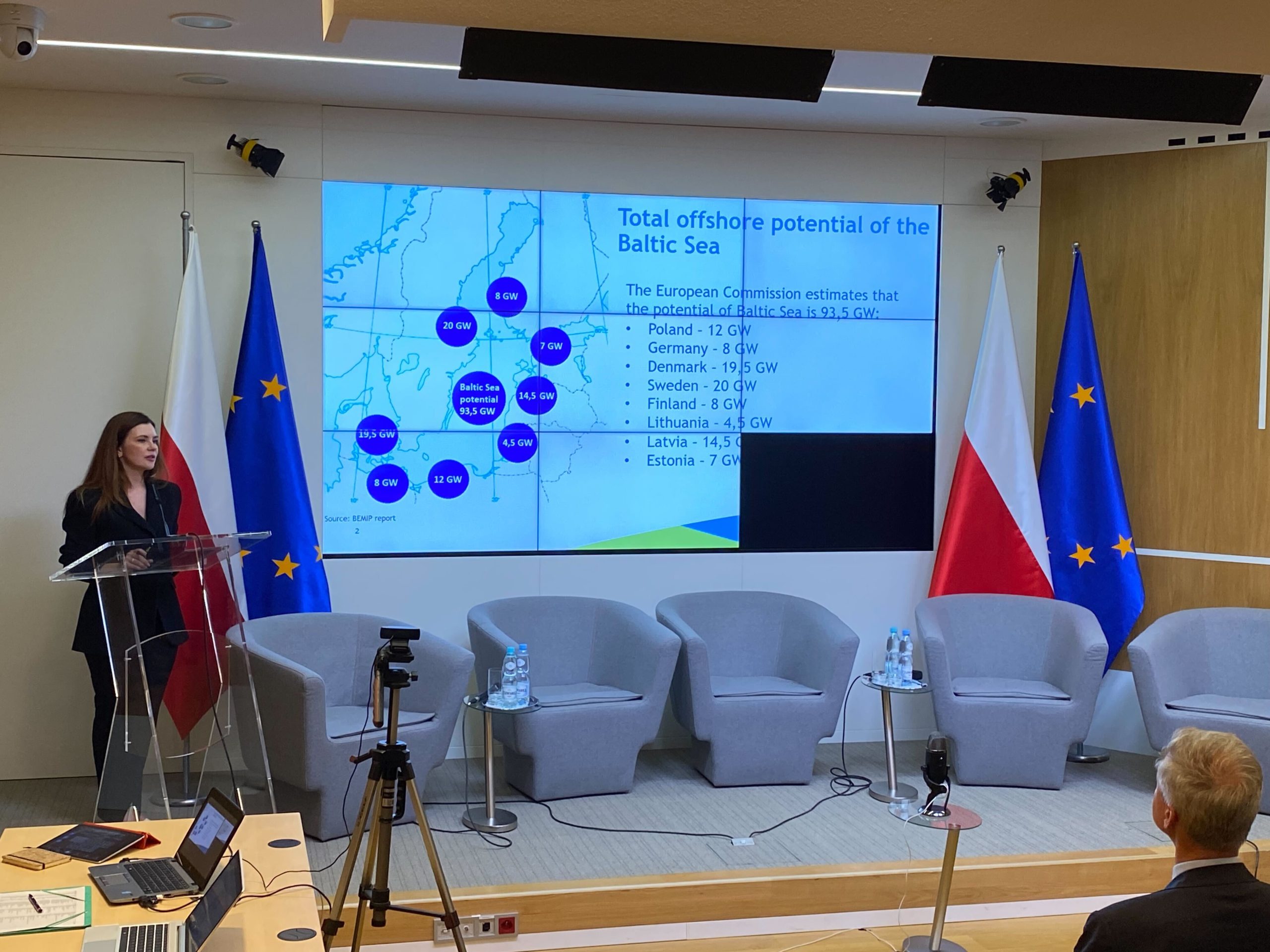
Wanda Buk, Deputy CEO PGE SA presenting PGE offshore plans in the Baltic Sea
The ongoing work on electricity market design and the net-zero industrial act holds promise in accelerating Europe’s clean energy transition and addressing future challenges. This conference aimed to assess the current state of offshore wind development in the Baltic region, especially a year after the landmark Marienborg Declaration. The discussions revolved around how policymakers can support project developers in realising their ambitious offshore plans in the region.
Malgosia Bartosik, Deputy CEO of Wind Europe, expressed optimism about Poland’s role in the offshore wind landscape: “Poland has the potential to emerge as one of Europe’s largest offshore wind hubs, drawing new investments and generating thousands of jobs.”
PGE, one of Poland’s leading energy companies, is at the forefront of harnessing the Baltic Sea’s wind energy potential. The company is currently developing three offshore wind farm projects with a combined capacity of 3.4 GW. In addition to these projects, PGE has secured permits for five new seabed areas, potentially adding another 3.9 GW to their portfolio.
Arkadiusz Sekściński, CEO of PGE Baltica, shared PGE’s vision for the future: “By 2040, we aim to finalize offshore projects with a capacity exceeding 7 GW. We require domestic contributions and components for our investments.”
